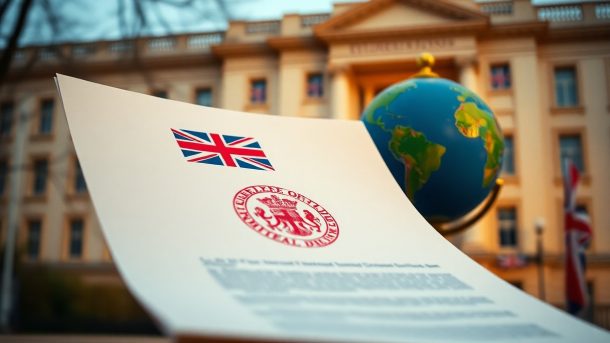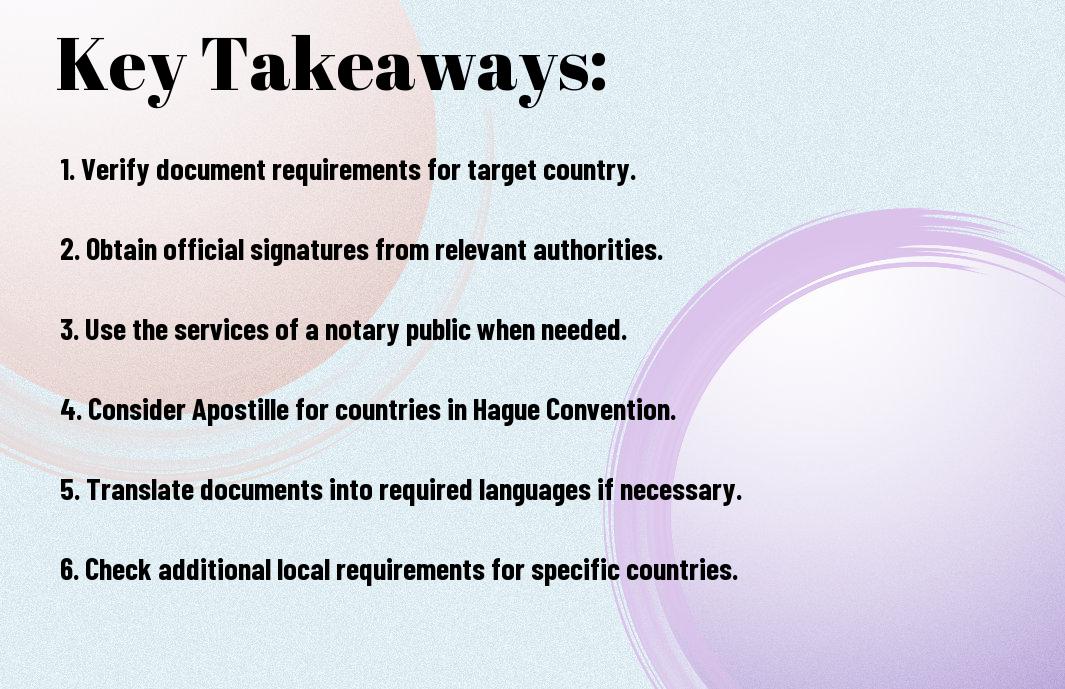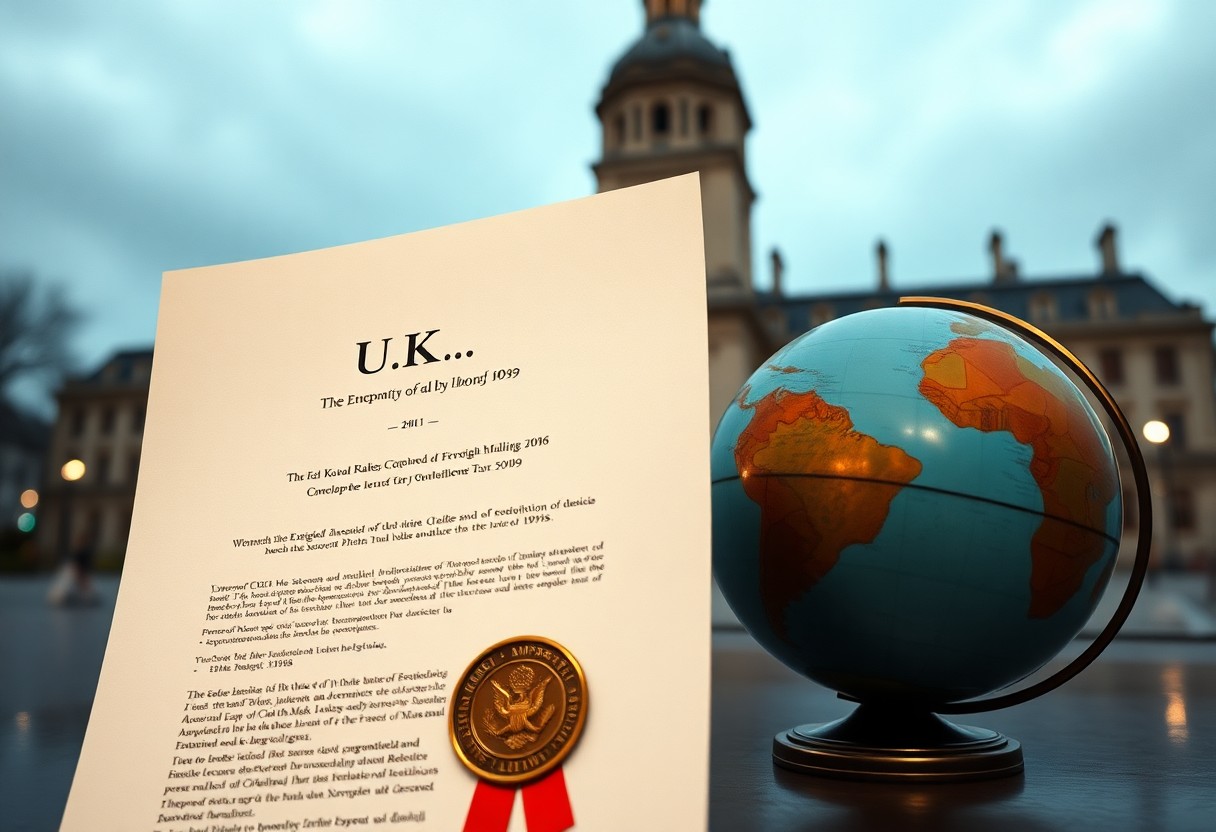It’s imperative to understand the process of legalising your UK documents when you plan to use them abroad. This guide will walk you through the necessary steps to ensure your important papers meet the requirements of foreign authorities. You will learn about the various types of legalisation, including apostilles and embassy verification, and how to navigate the specific procedures involved. With the right knowledge, you can make the legalisation process smooth and straightforward, allowing you to focus on your international endeavors.
Key Takeaways:
- Check Requirements: Always verify the specific legalisation requirements of the destination country, as they can vary significantly.
- Obtain a Notary Seal: Most documents will need to be notarised before proceeding with the legalisation process.
- Foreign Office Legalisation: After notarisation, documents must be submitted to the UK Foreign, Commonwealth & Development Office for legalisation.
- Apostille Certificate: If the document is to be used in a country that is a member of the Hague Apostille Convention, ensure that an Apostille is attached.
- Processing Time: Be aware of processing times, as legalisation can take several days to weeks, depending on the volume of applications.
Understanding Document Legalisation
Are you planning to use UK documents in foreign countries? Understanding the process of document legalisation is important to ensure that your paperwork is accepted abroad. This often involves a series of steps to verify authenticity and compliance with the specific legal requirements of the destination country.
What is Document Legalisation?
For your documents to be considered valid internationally, document legalisation is the process of certifying that these documents are genuine. This typically involves obtaining confirmation from various authorities, such as the notary public and the Foreign, Commonwealth & Development Office (FCDO).
Importance for International Use
Below the surface, legalising your documents is vital for their acceptance in foreign jurisdictions. Without this process, your paperwork may be viewed as invalid or unreliable, potentially jeopardising your personal or business transactions abroad.
This verification not only provides proof of authenticity but also builds trust with officials and institutions in the host country. By ensuring your documents are properly legalised, you safeguard your interests and improve your chances of a seamless and successful experience when dealing internationally.
Types of Documents That Can Be Legalised
You can legalise various documents for use abroad, ensuring they meet the required standards of authenticity. These typically include:
- Personal Documents
- Business Documents
- Educational Certificates
- Legal Documents
- Medical Records
Recognizing the different categories helps streamline the legalisation process.
| Document Type | Description |
| Personal Documents | Birth, marriage, and divorce certificates. |
| Business Documents | Articles of incorporation and contracts. |
| Educational Certificates | Diplomas and academic transcripts. |
| Legal Documents | Powers of attorney and wills. |
| Medical Records | Health records needed for certain visas. |
Personal Documents
At the core of personal document legalisation are certificates such as birth, marriage, and divorce. These documents serve as vital records when transitioning to another country, such as for residency applications or marriage in a foreign jurisdiction. Ensuring these documents are legalised can facilitate smoother transitions and fulfil legal requirements.
Business Documents
For professionals looking to expand globally, business documents like articles of incorporation, contracts, and shareholder agreements play an important role. These documents validate your business’s credibility and are often mandatory for various international operations.
But the process is not just about obtaining signatures; you must ensure that business documents are correctly notarised and authenticated. Each country may require different levels of legalisation, so understanding the specific requirements for your target nation will aid in the efficient handling of your business affairs abroad. Comprehensive attention to detail can prevent delays and complications, allowing your enterprises to flourish on international grounds.
The Legalisation Process in the UK
Despite being straightforward, the legalisation process for UK documents can seem complex. You will need to choose between an Apostille or consular legalisation, depending on the destination country. For detailed guidance, refer to Apostille and consular legalization of documents from the United Kingdom. Understanding these options is vital to ensure your documents are valid abroad.
Steps Involved
Among the first steps in the legalisation process is determining the type of document you need to legalise. Then, gather necessary information and prepare your documents for submission to the appropriate authority, whether that’s the Foreign, Commonwealth & Development Office or the relevant embassy or consulate. It’s important to follow all guidelines precisely to avoid delays.
Common Pitfalls to Avoid
Process errors can lead to setbacks in getting your documents legalised. You should ensure that all documents are correctly formatted and meet the specific requirements of the destination country to avoid issues.
Avoid skipping the verification of your documents before submission. Providing incomplete or improperly filled documents can result in rejection. Additionally, make sure to check the legalisation timelines, as different countries may have varying processing speeds. Lastly, don’t underestimate the importance of allowing adequate time for the entire legalisation process, including any possible postal delays.
The Role of Apostille in Document Legalisation
After you have prepared your documents for international use, obtaining an Apostille is an vital step in the legalisation process. This certification is issued under the Hague Convention and ensures that your documents are recognised in foreign countries that are part of the agreement. The Apostille verifies the authenticity of the signature, stamp, and seal on your document, making it legally valid abroad.
What is an Apostille?
Against what many may assume, an Apostille is not an additional document but rather a certificate itself. It is attached to your original document, serving as proof that your document is legitimate and has been properly authenticated by a competent authority in your country.
How to Obtain an Apostille
Across various locations, obtaining an Apostille involves a streamlined process. You will need to submit your document to a designated authority, typically the Foreign Office in the UK, along with any required fees and identification. The processing time can vary based on the volume of requests, so plan accordingly.
Plus, you can expedite the process by using a professional service that specializes in document legalisation. They can guide you through the necessary steps and handle the paperwork on your behalf, ensuring that you receive your Apostille quickly and efficiently while avoiding potential pitfalls in the process.
Additional Requirements for Specific Countries
Unlike many countries, some nations have unique legalisation requirements that extend beyond the Apostille process. You may need to provide translations, specific forms, or additional certifications to ensure your documents are accepted. It’s vital to research the specific needs of the country where you intend to use your legalised documents, as failing to comply can lead to delays or rejection.
Country-Specific Regulations
After identifying the destination country, you should familiarize yourself with its legalisation laws. Some countries may require extra steps for certain document types, such as marriage certificates or academic transcripts. It’s advisable to consult the official embassy or consulate website for detailed regulations to ensure that your documents meet all requirements.
Navigating Different Legalisation Systems
Among the many challenges you might face is the variety of legalisation systems across different countries. Each country has a distinct process, and understanding these differences can simplify your journey.
Also, keeping track of various requirements can be time-consuming and complex, so you may want to consider enlisting professional services that specialize in document legalisation. They can streamline the process by ensuring your documents adhere to local regulations, ultimately saving you time and reducing the risk of errors that could lead to complications during legalisation. This assistance can be especially valuable when dealing with multiple jurisdictions or documents requiring specific attention.
Costs and Timeframes
Keep in mind that the costs and timeframes associated with legalising UK documents can vary significantly based on the type of document and the specific requirements of the destination country. It’s important to budget accordingly and factor in additional expenses such as notarisation, translation, and courier services, as these can all impact the overall cost of the legalisation process.
Overview of Fees
One of the first steps in planning your document legalisation is to assess the associated fees. Typically, fees may include government charges, service provider costs, and any optional extras such as expedited processing. Each document type may have different fee structures, so it’s wise to check directly with relevant authorities or service providers for accurate pricing.
Estimated Timeframes for Legalisation
Across various services, the time it takes to legalise your documents can differ widely. Generally, standard processing may take several days to a few weeks, while express services can significantly accelerate the timeline for an additional fee.
Legalisation timelines hinge on multiple factors, including the volume of applications being processed and the specific agency involved. It’s prudent to initiate the legalisation process well in advance of your intended use to avoid any potential delays. Should you require documents urgently, many service providers offer expedited options that can reduce processing times, ensuring your documents are ready for international use as quickly as possible.
Summing up
Considering all points, legalising your UK documents for use abroad involves a clear understanding of the notarisation process, obtaining an Apostille, and adhering to specific requirements set by the foreign authorities. By following the steps outlined—ensuring your documents are correctly notarised, verifying the need for an Apostille, and submitting everything to the appropriate agencies—you can efficiently prepare your documents for international acceptance. This systematic approach will help ensure that your legal documents are validated and recognised in your intended country, making your overseas ventures smoother and more manageable.
Q: What documents can be legalized for use abroad in the UK?
A: Various types of documents can be legalized, including academic certificates, marriage certificates, birth and death certificates, power of attorney documents, and commercial documents such as contracts. It is important to check the specific requirements of the country where the documents will be used, as different countries may have varying rules regarding document legalization.
Q: What is the process for legalizing UK documents for use abroad?
A: The process typically involves several steps. First, you must have the document officially notarized by a qualified notary public. Next, it should be submitted to the Legalisation Office of the Foreign, Commonwealth & Development Office (FCDO) for verification. Lastly, depending on the destination country, you may need to have the document further legalized by the relevant embassy or consulate. Always check with the specific embassy or consulate for additional requirements, as they may request extra documentation.
Q: How long does it take to legalize documents in the UK?
A: The timeframe for legalizing documents can vary based on multiple factors, including the type of document and the current processing times at the Legalisation Office. Typically, the legalization process may take anywhere from a few days to several weeks. To speed up the process, consider using expedited services offered by the FCDO, which can significantly reduce wait times. Be sure to plan ahead and allow sufficient time for completion, especially if your documents are needed by a specific date.





